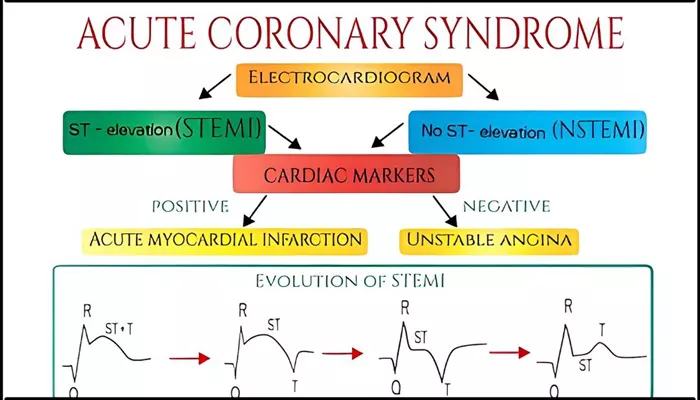Acute Coronary Syndrome (ACS) is a term that encompasses a range of urgent heart conditions, including heart attacks (myocardial infarctions) and unstable angina. These conditions are caused by a sudden reduction of blood flow to the heart, usually due to the rupture of a plaque in a coronary artery. The question on the minds of many patients, especially those who are already managing chronic health conditions like dental diseases, is whether ACS can be cured. This article will explore this important question in depth, providing insight into the nature of ACS, its management, and what patients with dental diseases can do to protect their heart health.
Understanding Acute Coronary Syndrome
Acute Coronary Syndrome occurs when one or more of the coronary arteries supplying blood to the heart muscle becomes suddenly blocked, leading to reduced oxygen supply to the heart tissue. This blockage is typically caused by the rupture of an atherosclerotic plaque, which can lead to the formation of a blood clot. When blood flow is reduced or completely blocked, the heart muscle is deprived of oxygen, leading to damage or death of the heart tissue.
The Connection Between Heart Health And Dental Health
It may seem surprising to link heart health with dental health, but the connection is well-established. Poor dental hygiene, especially when it leads to gum disease (periodontitis), can increase the risk of heart disease, including ACS. The bacteria that cause gum disease can enter the bloodstream, leading to inflammation and contributing to the development of atherosclerosis—the hardening and narrowing of the arteries.
For patients already dealing with dental diseases, managing oral health is crucial to reducing the risk of ACS. Regular dental check-ups, proper brushing and flossing, and treatment of any dental conditions are essential steps in preventing heart disease.
SEE ALSO: Can You Get Rid of Cholesterol in Your Arteries?
Can Acute Coronary Syndrome Be Cured?
The straightforward answer is that Acute Coronary Syndrome cannot be “cured” in the traditional sense, like an infection can be cured with antibiotics. However, it can be effectively managed, and the risk of future episodes can be significantly reduced with appropriate medical treatment, lifestyle changes, and ongoing care.
The primary goal in treating ACS is to restore blood flow to the heart as quickly as possible to minimize damage to the heart muscle. This is typically achieved through a combination of medications and procedures such as angioplasty, stenting, or coronary artery bypass surgery.
Medical Management of Acute Coronary Syndrome
Once a patient has experienced ACS, they will likely be prescribed a range of medications to manage their condition and reduce the risk of recurrence. These medications may include:
Antiplatelet Agents: Drugs like aspirin and clopidogrel help prevent blood clots from forming in the arteries.
Beta-Blockers: These medications reduce the heart’s workload by slowing the heart rate and lowering blood pressure.
ACE Inhibitors: Angiotensin-converting enzyme (ACE) inhibitors help relax blood vessels and reduce blood pressure, making it easier for the heart to pump blood.
Statins: These drugs lower cholesterol levels, reducing the buildup of plaque in the arteries.
Procedural Interventions
In many cases, patients with ACS may undergo a procedure to restore blood flow to the heart. The most common procedures include:
Percutaneous Coronary Intervention (PCI): Also known as angioplasty, PCI involves using a balloon to widen the blocked artery and placing a stent to keep it open.
Coronary Artery Bypass Grafting (CABG): This surgical procedure involves creating a bypass around the blocked artery using a blood vessel from another part of the body.
Long-Term Management And Prevention
While the immediate threat of ACS can be managed with medication and procedures, long-term management is essential to prevent future episodes. Patients must adopt lifestyle changes to reduce their risk factors, including:
Quitting Smoking: Smoking is a major risk factor for heart disease.
Quitting smoking can significantly reduce the risk of ACS.
Healthy Diet: A diet low in saturated fats, trans fats, cholesterol, and sodium can help reduce the risk of plaque buildup in the arteries.
Regular Exercise: Physical activity helps maintain a healthy weight, lower blood pressure, and improve overall cardiovascular health.
Managing Chronic Conditions: Conditions like diabetes, hypertension, and high cholesterol must be carefully managed to reduce the risk of ACS.
The Role of Dental Health in Preventing ACS
For patients with dental diseases, maintaining good oral hygiene is not only important for preventing dental complications but also for reducing the risk of heart disease. Periodontal disease, in particular, has been linked to an increased risk of heart disease. The inflammation caused by gum disease can contribute to the development of atherosclerosis, which is a major risk factor for ACS.
Patients with dental diseases should ensure they receive regular dental care, treat any gum disease promptly, and maintain excellent oral hygiene to reduce the risk of ACS. Brushing at least twice a day, flossing daily, and using an antiseptic mouthwash can help control the bacteria that cause gum disease and lower the risk of heart disease.
Conclusion
While Acute Coronary Syndrome cannot be cured in the traditional sense, it can be effectively managed with a combination of medical treatment, lifestyle changes, and ongoing care. For patients with dental diseases, maintaining good oral health is an important part of reducing the risk of heart disease and ACS. By working closely with their healthcare providers, patients can manage their risk factors, prevent future episodes, and lead a healthier, more active life.
It is essential for patients with both dental and cardiovascular concerns to understand the link between these conditions and take proactive steps to protect their heart health.


